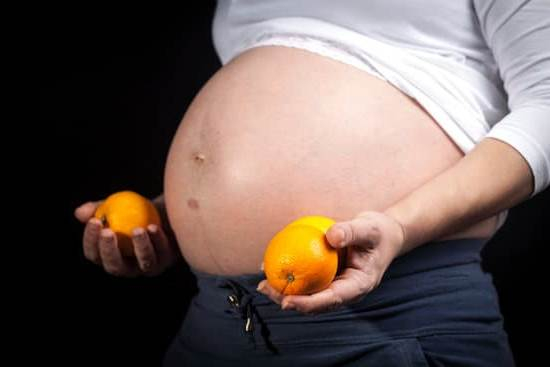How long does it take to get pregnancy symptoms? This is a common question among those who are trying to conceive or suspect that they may be pregnant.
Understanding the timing of pregnancy symptoms is crucial for many reasons, including early detection and proper prenatal care. In this article, we will delve into the concept of pregnancy symptoms, explore the stages of the menstrual cycle, discuss early signs of pregnancy, and explain factors that can affect when these symptoms start to appear.
Pregnancy symptoms are physical or emotional changes that occur as a result of the body’s preparation for pregnancy and fetal development. It is important to note that not all women experience the same symptoms, and their onset can vary from person to person. Understanding when these symptoms typically appear can help individuals recognize potential signs of pregnancy and seek appropriate medical advice.
The timing of pregnancy symptoms is closely linked to the menstrual cycle, as well as the process of implantation. By understanding these physiological processes and their relationship to symptom onset, individuals can better comprehend when they might expect to experience signs of early pregnancy.
Additionally, factors such as individual differences and conception method can also influence when pregnancy symptoms begin to manifest. Throughout this article, we will explore these factors in detail and provide valuable insight into recognizing and understanding the timing of pregnancy symptoms.
Understanding the Menstrual Cycle
The menstrual cycle is a complex process that involves various hormonal and physical changes in the female body. Understanding the stages of the menstrual cycle is crucial in determining how long it takes to get pregnancy symptoms. The menstrual cycle typically lasts about 28 days, but can vary from person to person. Here is a breakdown of the different stages:
- Menstrual Phase: This phase marks the beginning of the menstrual cycle, during which bleeding occurs as the uterus sheds its lining. It typically lasts for 3-7 days.
- Follicular Phase: Following menstruation, this phase involves the development of follicles in the ovaries in preparation for ovulation. Estrogen levels also begin to rise during this phase.
- Ovulation: This is the most fertile stage of the menstrual cycle, during which an egg is released from one of the ovaries and becomes available for fertilization. Ovulation usually occurs around day 14 of a 28-day cycle.
- Luteal Phase: After ovulation, the luteal phase begins and involves the release of progesterone to support a potential pregnancy. If fertilization does not occur, estrogen and progesterone levels drop, leading to menstruation.
Understanding these stages is essential in determining when pregnancy symptoms may begin to manifest. This knowledge helps individuals understand their own bodies and recognize early signs of pregnancy.
It is important to note that pregnancy symptoms typically do not appear until after implantation has occurred. Implantation usually takes place 6-12 days after ovulation, and it is at this point that hormone levels change significantly, leading to noticeable symptoms.
There are many factors that can affect when pregnancy symptoms start to appear. Individual differences play a significant role, as each person’s body may respond differently to hormonal changes. In addition, the method of conception can also impact symptom onset; for example, women undergoing fertility treatments may experience symptoms earlier due to hormonal interventions.
Early Pregnancy Signs
The first early signs of pregnancy typically appear around 1-2 weeks after conception. This is often around the time when a woman would expect her next menstrual period. Some women may begin experiencing symptoms even before they miss their period, while others may not notice any signs until several weeks into their pregnancy.
Here are some common early pregnancy signs and when they typically begin to appear:
- Nausea: This symptom, often referred to as morning sickness, usually starts around the 6-week mark of pregnancy.
- Breast Changes: Swollen or tender breasts are often one of the earliest symptoms of pregnancy and can start as early as 2-3 weeks after conception.
- Fatigue: Feeling more tired than usual is a common early sign of pregnancy and can begin as early as one week after conception.
It’s important to note that every woman’s experience with early pregnancy signs can differ, so not everyone will experience all of these symptoms or at the same time. Additionally, some women may not experience any noticeable early signs of pregnancy at all. If a woman suspects she might be pregnant but hasn’t yet experienced any symptoms, it’s advisable for her to take a home pregnancy test or consult with a healthcare professional for confirmation.
Implantation
What Is Implantation?
Implantation occurs when a fertilized egg attaches itself to the lining of the uterus, typically around 6-10 days after ovulation. This process is essential for the embryo to receive nutrients and establish a connection with the mother’s body.
Relation to Pregnancy Symptoms
Following implantation, the body begins to produce the hormone hCG (human chorionic gonadotropin), which is responsible for signaling to the body that it is pregnant. Once this hormone starts circulating, it can lead to various physical and emotional changes that are commonly recognized as pregnancy symptoms.
Timing of Implantation and Symptoms
The timing of implantation can vary from woman to woman, which means that the onset of pregnancy symptoms can also differ. Some women may experience implantation earlier or later than average, influencing when they begin to notice signs of pregnancy such as breast tenderness, fatigue, nausea, or a missed period.
Understanding implantation and its relationship with pregnancy symptoms can help individuals recognize and interpret their own experiences in the early stages of pregnancy. However, it’s important to keep in mind that every person’s body is unique, and individual differences can result in varying timelines for experiencing these symptoms.
Factors Affecting Symptom Onset
Individual Differences
Individual differences play a significant role in the onset of pregnancy symptoms. Every woman’s body is unique, and therefore, the experience of early pregnancy signs can vary widely. Some women may start to notice symptoms as early as a week after conception, while others may not experience any noticeable changes for several weeks. Factors such as hormone levels, overall health, and sensitivity to bodily changes can all contribute to this variation in symptom onset.
Conception Method
The method of conception can also impact when pregnancy symptoms begin to manifest. For instance, in cases of in vitro fertilization (IVF), where fertilized embryos are implanted into the uterus, some women may start experiencing symptoms earlier due to hormonal treatments involved in the procedure. On the other hand, for those who have conceived naturally, the timing of symptom onset may be more aligned with the typical timeline based on the menstrual cycle.
Underlying Health Conditions
Another factor that can affect when pregnancy symptoms appear is the presence of underlying health conditions. Women who have certain medical conditions such as polycystic ovary syndrome (PCOS) or endometriosis may have irregular menstrual cycles or experience difficulties with fertility. This can make it challenging to pinpoint when pregnancy symptoms might start to show up, as their menstrual cycle patterns differ from those without these conditions.
Additionally, these conditions could also contribute to variations in early pregnancy signs due to hormonal imbalances and other physiological factors. Overall, it’s important for women with underlying health issues to consult with a healthcare professional for guidance on interpreting potential pregnancy symptoms.
Common Pregnancy Symptoms
During the early stages of pregnancy, many women experience common symptoms that can help indicate that they are pregnant. One of the most well-known of these symptoms is morning sickness, which typically begins around 6 weeks into the pregnancy.
This nausea and vomiting can occur at any time of the day and may last throughout the first trimester. Another common symptom is breast tenderness, which can start as early as a few days after conception due to the hormonal changes in the body.
Fatigue is also a prevalent symptom during early pregnancy, often starting around 1-2 weeks after conception. This can be attributed to the increased levels of progesterone in the body, which can cause drowsiness and a feeling of being constantly tired. Additionally, frequent urination is another common symptom that often begins around 6-8 weeks into the pregnancy as a result of increased blood flow to the kidneys.
Other commonly reported symptoms include food aversions or cravings, mood swings, bloating, and heightened sense of smell. These symptoms usually start to appear within the first few weeks after conception and continue throughout the first trimester. It’s important to note that not all women will experience these symptoms, and some may experience them at different times or with varying intensities.
Understanding when these common symptoms are likely to occur can be helpful for individuals who are trying to conceive or suspect they may be pregnant. However, it’s essential to keep in mind that every woman’s experience with pregnancy is unique, and individual differences as well as other factors like conception method can impact when these symptoms manifest. If there is uncertainty about pregnancy status or concerns about experiencing symptoms, seeking medical advice for professional confirmation is crucial.
Uncommon Pregnancy Symptoms
While most people are familiar with common pregnancy symptoms such as morning sickness and fatigue, there are also lesser-known and less common symptoms that can indicate pregnancy. Understanding these uncommon symptoms and their timing can be important for those trying to conceive or who suspect they may be pregnant.
One uncommon pregnancy symptom is a metallic taste in the mouth, often described as a persistent, unpleasant taste of metal. This symptom can occur as early as one to three weeks after conception and is thought to be caused by hormonal changes in the body.
Another lesser-known symptom is an increased sense of smell, where certain scents that were once tolerable become intolerable during early pregnancy. This heightened sense of smell can begin as early as the first few weeks of pregnancy.
Some women may experience mood swings and irritability as an uncommon early sign of pregnancy. These emotional changes can be attributed to hormonal fluctuations and may begin around the time a woman would expect her period. Additionally, some women may notice changes in their skin, such as acne or darkening of the skin on the face, known as melasma. These skin changes can occur within the first trimester and are related to hormonal shifts in the body.
It’s important to note that while these symptoms are less common, they can still be indicators of pregnancy. Understanding the timing of these uncommon symptoms can provide valuable insight for those wondering how long it takes to get pregnancy symptoms and when they should consider taking a pregnancy test or seeking medical advice.
Seeking Medical Advice
In conclusion, the timing of pregnancy symptoms can vary greatly among women, and there is no one-size-fits-all answer to the question, “How long does it take to get pregnancy symptoms?” Understanding the stages of the menstrual cycle, the process of implantation, and various individual factors can provide insight into when early signs of pregnancy may manifest.
It’s important to recognize that while some women may experience symptoms shortly after conception, others may not notice any changes for several weeks. Being aware of these factors can help individuals better understand and interpret their own experiences.
Regardless of when symptoms appear, seeking medical advice is crucial for confirming a pregnancy and ensuring proper prenatal care. If experiencing potential signs of pregnancy, it is recommended to consult with a healthcare professional for confirmation through a urine or blood test. This confirmation is essential for beginning prenatal care and making necessary lifestyle adjustments for a healthy pregnancy.
Overall, understanding the timing of pregnancy symptoms can provide valuable insight into one’s reproductive health. Whether symptom onset occurs early or later on, being informed about common and uncommon signs of pregnancy and knowing when to seek medical advice empowers individuals to make informed decisions about their reproductive health and well-being.
Frequently Asked Questions
How Soon Can You Get Pregnancy Symptoms?
Pregnancy symptoms can start as early as one to two weeks after conception, but for most women, they may not become noticeable until a missed period. Symptoms can include fatigue, nausea, breast tenderness, and frequent urination.
What Are Symptoms of Pregnancy at 1 Week?
At 1 week pregnant, it’s unlikely that you’ll experience any noticeable physical symptoms of pregnancy. However, some women may notice light spotting or cramping due to the implantation of the embryo in the uterus. It’s important to remember that every woman and pregnancy is different, so symptoms can vary.
How Soon Can You Know if You Are Pregnant?
Most home pregnancy tests claim to be accurate as early as the first day of a missed period. Some sensitive tests may even give you results a few days before your missed period.
However, for the most reliable results, it’s best to wait at least one week after your missed period or consult with a healthcare provider for a blood test.

Welcome to my fertility blog. This is a space where I will be sharing my experiences as I navigate through the world of fertility treatments, as well as provide information and resources about fertility and pregnancy.





